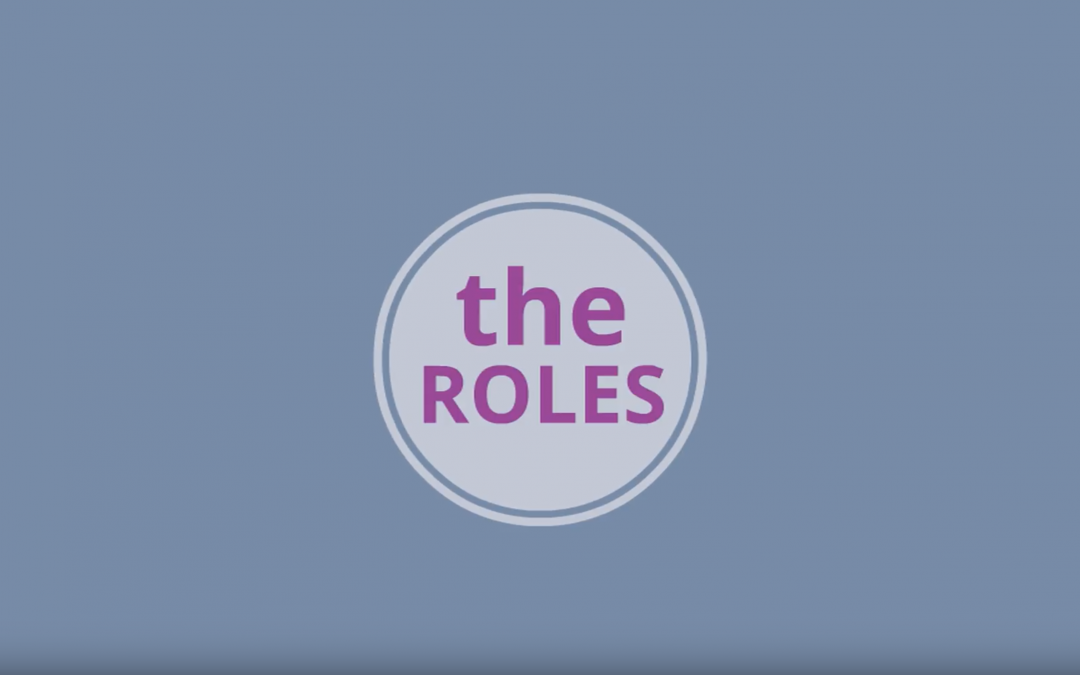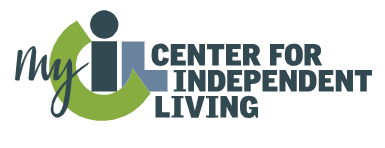If you’re just starting to navigate the world of self-directed care, you may find it a little complicated. We know this firsthand because over half of our team has a disability, with many of them using our own services.
Self-directed care seems even more complicated with the different roles people play: Client, Employer, Caregiver, Case Manager and Fiscal/Employer Agent. On top of that, different states and programs use different names to identify these roles.
About This Self-Directed Care Guide
This self-directed care guide will help you gain a better understanding of self-direction by breaking down the roles people play. We’ll briefly go over what is self-direction. Then, we’ll review each role, what they are responsible for and what they may be called in different programs.
Since the role of fiscal/employer agent is often the most misunderstood role, we’ll go into detail about what a fiscal/employer agent is, what they do, and why you need one. We also go over how a fiscal/employer agent is different than a regular payroll agent.
In a Nutshell: What Is Self-Directed Care?
Before we dive into the roles people play in self-directed care, let’s take a moment to explain what self-directed care is.
Self-direction enables people with disabilities to live independently in their own home — and community. When people are self-directing, they hire their caregivers, becoming the Employer. They decide what services they need, when they need them, and how they would like to receive them.
Self-Directed Care vs. the Traditional, Agency Approach
Compared to the agency model, self-direction differs in many ways. From choosing their own caregivers instead of being limited to agency’s staff to determining their own schedule instead of going by an agency schedule, a self-directed Client has more freedom.
The bottom line is self-direction shifts the focus from the agency (what’s best for the agency) to the Client (what’s best for the Client).
By placing the importance on the needs of the Client instead of the agency, Clients become empowered. They have choice over their own care and lives. This flexibility and control come with additional responsibilities as well.
While the Client may have more responsibility when self-directing their own care, they also have a team of people supporting them in the process.
Breaking Down the Roles in the Self-Directed Care World
When it comes to self-direction, there’s a team of people involved to make sure the Client enjoys successful health outcomes and reaches their independent living goals.
The Client’s team works to ensure the Client is getting the services and supports they need — and getting them the way they want. They also help Clients navigate the self-direction process.
Self-Directed Team Members
This team includes people who provide the services, people who work with the Client to make sure they’re getting the right services, and people who take care of all the nitty-gritty details that come with being a legal Employer of caregivers (employees).
Let’s break down these roles people play in self-directed care.
The Self-Directed Client
If you’re self-directing and receiving the services, you are the Client.
Depending on the program you’re participating in, your role may be called a:
- Client
- Participant
- Consumer
- Member
- Veteran
All of these different names mean the same thing: You are self-directing the services you receive.
Client Responsibilities
In the world of self-direction, the focus is on the Client. The whole purpose of self-direction is to empower Clients to live their lives the way they want to live them. Clients choose who they want to provide services. And they choose how and when they want to receive these services.
With the freedom of choice comes the responsibility to make the decisions. Compared to the traditional, agency approach, self-direction requires Clients to be more involved in the decisions regarding their care.
As the Client, your role includes:
- Recruiting and hiring your caregivers
- Deciding the tasks you want your caregivers to perform
- Dictating how you want your caregivers to perform these tasks
- Training your caregivers — or arranging for training — on how to perform these tasks
- Determining when you want your caregivers to work
- Establishing how much you’ll pay your caregivers (based on your program guidelines)
Clients Who Are Also Employers
When you are a Client, and you sign your caregiver’s timesheets, you are also an Employer. As an Employer, you have additional responsibilities — the responsibilities that come with being a legal Employer of employees.
We go over that role in more detail below.
The Employer in Self-Directed Care
As we mentioned above, when you sign caregivers’ timesheets, you are an Employer. It’s important to note that a Client isn’t always an Employer.
For instance, if you are not comfortable making all the decisions and fulfilling all the responsibilities, you may elect someone to represent you (an authorized representative). They will review your caregiver’s timesheets and sign them, certifying the hours listed were the hours worked. They are then the Employer (signing timesheets) while you are the Client (receiving services).
For Clients with cognitive challenges, they may choose an Employer to help them with the tasks related to having employees. Another example of when someone may have an Employer is a child. A child in a self-direction program will have an Employer, who is most often their parent.
Employer Responsibilities
Whether are you a Client who is also the Employer (receives the services and signs timesheets), or you are only the Employer (signs timesheets but does not receive services), you are responsible for everything related to being an Employer of your caregivers.
For example, as the Employer, you must:
- Process caregiver timesheets
- Pay caregivers
- Withhold and deposit payroll taxes
- File tax and labor reports
- Withhold workers’ compensation (if applicable)
- Complete background checks on your caregivers (depends on your program)
The above list of Employer responsibilities for self-directing care can seem daunting — especially if you don’t have any background in accounting.
Here’s the good news: There’s a role in self-direction that takes care of everything related to payroll and taxes. It’s called a fiscal/employer agent. See below for more details on what a fiscal/employer agent does and the different names they go by depending on the state or program.
The Caregiver in Self-Directed Care
The caregiver (employee) is the one providing services to the self-directing Client.
Depending on your program or state, a caregiver can be called:
- An attendant
- An employee
- A direct service worker (DSW)
- A personal service worker (PSW)
- A personal care attendant (PCA)
Caregiver Responsibilities
Caregivers can be whoever the Client chooses. Whether the Client chooses a family member, a close friend, a neighbor or another trusted person to provide their care, the caregiver still needs to meet the program’s requirements.
Program requirements can include:
- Passing background checks
- Being certified in certain trainings, such as CPR
- Legal status for work
If you are a caregiver, you’re responsible for:
- Providing the care as the Client directs
- Providing the care according to the schedule the Client established
- Getting the training you need based on program requirements
Being a caregiver of someone self-directing their own care is also empowering. You are making a difference in your Client’s life. You have an important role to play in self-direction.
The Case Manager in Self-Directed Care
A case manager is like the coach on the self-directed care team. They work with the Client to make sure the Client is getting everything needed to live independently. They ensure Clients have control and choice when it comes to their lives.
In the beginning, a case manager will guide the Client through the process. Then, they provide ongoing support.
Depending on your state or program, a case manager may be called a:
- Service facilitator
- Care consultant
- Options counselor
- Service coordinator
- Support broker
- Service broker
Case Manager Responsibilities
The responsibilities of the case manager include:
- Assessing the Client’s needs
- Determining the types of services based on these needs
- Planning and coordinating the services
- Getting the Client linked with the right services
- Monitoring the services the Client is receiving
- Advocating for the Client
Having an advocate for the Client is another way self-direction empowers Clients to live their best lives. When a Client has someone in their corner, they have the additional support they need to achieve their independent living goals.
The Fiscal/Employer Agent (F/EA) in Self-Directed Care
The fiscal/employer agent is the team of people (a company or organization) who performs all of the payroll functions for the Client. ACES$ is a fiscal/employer agent serving different self-directed programs throughout the country.
More importantly, ACES$ is the largest non-profit fiscal/employer agent. As part of MyCIL (Northeast PA Center for Independent Living), ACES$ has been providing fiscal management services for self-directed people since 1988.
Depending on the program or state you’re a participant in, the fiscal/employer agent may be called a:
- Payroll agent
- Fiscal agent
- Payroll provider
- Financial Management Services (FMS) provider
Fiscal/Employer Agent Responsibilities
When ACES$ is the fiscal/employer agent, we:
- Process timesheets
- Run payroll and pay your caregivers
- Withhold and file taxes
- Make sure the Client stays within budget
- Conduct caregiver background checks (depending on the state and program)
Is There a Difference Between a Fiscal/Employer Agent and a Regular Payroll Provider?
While you may see the terms payroll agent or payroll provider in self-direction, they are different than other industries in one key way: liability.
Payroll agents or payroll providers who provide financial management services for Clients in self-direction programs take on joint federal tax liability with their Clients.
That means the payroll agent shares their Clients tax liabilities. Regular payroll providers do not.
This makes payroll providers for self-direction financially responsible if any mistakes were made on a Client’s tax payments, filing and reporting. If a payroll provider makes a mistake, the IRS will hold the payroll provider responsible — not the Client.
This liability protects Clients from personal financial risk.
Why Do Clients Need a Fiscal/Employer Agent?
While your program may allow you to perform all of the Employer tasks (including everything related to payroll), most self-directed people with this option choose to allow a fiscal/employer agent to do them instead.
Benefits of Having a Fiscal/Employer Agent
Aside from the benefit of not being liable for any mistakes if you have a fiscal/employer agent, it’s also easier too. Taxes and payroll are not only confusing for those without the experience, but they are also time-consuming.
The paperwork alone can seem overwhelming. When you become an Employer and hire caregivers (employees), there are different tax forms you need to fill out. This also includes obtaining an Employer Identification Number (EIN).
With a fiscal/employer agent, you don’t need to worry about these forms. They will take care of providing you and your employees with the exact forms you need to fill out. Then, they file them on your behalf.
When you elect a fiscal/employer agent to complete the payroll and tax functions on your behalf, you can focus on what matters most: living your best, independent life.
Why Does ACES$ Financial Management Services Capitalize the Client Roles in Self-Direction?
Just as you’ll find different programs use different terms to describe each role, you’ll also find that capitalization differs. At ACES$ Financial Management Services, everything we do is with the benefit of the Client in mind.
Philosophy of ACES$
We are an organization that embraces the philosophy of self-determination — because we are an organization who has team members who are self-directing. We believe and work to ensure that our Clients have:
- The freedom to plan the supports and services they need to achieve their best, independent lives
- The authority to control their support dollars and the responsibility for using those dollars
- The supports and services to live and be involved in their community
- The responsibility to direct how and when they receive their supports and services
ACES$ capitalizes Client terms as another way of showing the value we place on them. It’s why we go above and beyond to ensure they are getting the best Client service.
How ACES$ Puts Our Self-Directed Clients First
Unlike other fiscal/employer agents, we don’t use a call center. When Clients call, they talk to one of our team members. We also invite Clients to our local offices should they need help. And we offer in-person or over-the-phone enrollment paperwork help.
The way we treat our Clients is the way we want to be treated — because we are also self-directed Clients ourselves.
Learn More About Self-Directed Care and the Roles People Play in It
If you have any questions about self-direction, the roles people play, or what ACES$ does as the fiscal/employer agent, contact us today at support@mycil.org or 1-800-344-7211.





